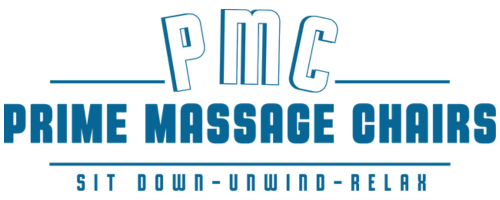
Why Does Massage Feel Good? The Science Behind The Sensation
If you're wondering "Why does massage feel good?", you're not alone. Feeling tense or sore can ruin your day, making even simple tasks tough. Did you know that a good massage can not only soothe your muscles but also trigger positive changes in your body?
This article will unpack the secrets behind the relieving touch of massage therapy and show you how it does more than just relax your muscles.
Keep reading to see why so many people love getting massages!
Unraveling the Sensation: Why Massage Feels Good
Discover why a rubdown brings joy, exploring the science of touch receptors, pleasure over pain signals, and circulation boosts.

The Role of Receptors and Nerve Fibers
Our skin is filled with tiny sensors called receptors. These receptors tell nerves to send signals to our brain about what we feel. During a massage, these sensors pick up the touch and push of hands or tools on our body.
The signals race through nerve fibers to reach the brain. This lets us know we are being touched and often makes us feel good.
The right touch may help alleviate bad feelings like pain. It does this by waking up special nerve fibers known as A-beta fibers. These nerves are fast messengers that rush to tell our brain about the nice feelings from a massage.
They help us forget the pain for a while because they're so quick at saying "Hey, this feels great!"
Now let's look at how massages can mix pleasure and pain relief together even more.
Interrupting Pain with Pleasure
Massages make us feel less pain. They do something special inside our bodies. When we get a massage, it wakes up nerve fibers called A-beta fibers. These good nerves send messages to the brain fast.
They tell the brain about touch that is not painful, like rubbing or pressing on our skin.
At the same time, massages help slow down other nerve fibers known as C-fibers. These are bad because they tell your brain when you're hurting. By making these slow and waking up the A-beta ones, massage tricks your body.
It's like closing a gate so pain can't get through as much.
This means while someone is massaging you, your body starts to forget about being sore or in pain because of this neat switcheroo with the nerves! Plus, your muscles say "thank you" by feeling more relaxed than before.
The Impact of Increased Blood Flow
Blood flow gets better when you get a massage. This helps to ease soreness and makes healing in the area faster.
Imagine your body like a busy highway; with massage, it's like adding more lanes so traffic can move smoothly—more blood means more oxygen and nutrients getting to where they are needed most.
It's one of the reasons why after a good massage, muscles feel less tight and you might feel full of energy.
Your brain also benefits from this boosted circulation. Studies show that areas in charge of mood and stress get more blood during a massage. That’s why you often leave feeling happier and more relaxed than when you walked in.
Ready for even more perks? Let’s talk about how massage releases natural painkillers into your body.
The Release of Feel-Good Chemicals
Massage helps your body let out feel-good chemicals like endorphins. These are natural painkillers that make you feel happy and relaxed.
As hands press and move over your skin, they tell your brain to release these special hormones. You then get calm and less aware of pain.
It's one reason why getting a massage can reduce your stress level in both mind and body, making everything seem a little better after just one session.
The Benefits of Massage Beyond the Feel-Good Factor
Experience more than relaxation with massage; dive into how it can ease anxiety, improve your sleep, relieve muscle tension, boost your energy, and increase flexibility. Keep reading to unlock the full potential of this therapeutic touch.
Anxiety Reduction and Improved Sleep Quality
Massage makes you feel calm and can help you sleep better. It does this by affecting your body in ways that lower worry and help you to relax.
- Massage helps your body let out chemicals like endorphins, oxytocin, dopamine, and serotonin. These chemicals make you feel happy and calm, which can lower anxiety.
- While getting a massage, your brain gets signals that make it release melatonin. Melatonin is a hormone that tells your body it's time to sleep. With more melatonin, you can fall asleep faster and sleep deeper.
- Serotonin is another thing that massages boost in your body. This chemical also helps with sleeping. So if you get a massage, it could make your sleep quality better.
- The touch from a massage can slow down your heart rate and make breathing deeper. This helps create a peaceful state which prepares the body for restful sleep.
- Massages reduce stress hormone levels in your body. For example, they decrease cortisol which is often linked to stress.
- Regular massages might change how your brain works to deal with stress over time. This can lead to less anxiety day-to-day.
- Deep tissue massage helps release muscle tension caused by stress or being too busy. When muscles are not tight anymore, it's easier for the mind to be at peace.
- Feeling less worried can also mean better focus during the day. This keeps thoughts at night from keeping you awake.
- By easing mental stress, massage supports overall wellness which includes good sleep patterns.

Alleviation of Muscle Pain and Soreness
Massages are amazing for sore muscles and can potentially make you feel better.
- Touching and pressing on muscles during a massage sends signals to your brain, which then tells your body to relax.
- As the massage therapist pushes on your body, blood flow increases in that area, bringing more oxygen and helping with healing.
- Endogenous opioids (like natural painkillers) get released when we get massages, making us feel less pain.
- Swelling can cause pain. Massage helps reduce swelling by moving fluids around in the body.
- Sometimes our nerves send too much pain information. Massage can quiet these nerves down so the pain isn’t too bad in some cases.
- Muscles can get tight. Massage stretches them out which makes them feel good again.
Boosting Energy and Enhancing Flexibility
Massage helps our bodies feel more awake and move with ease. It's like giving our muscles a fresh start.
- Massage boosts energy: Massage therapy can rejuvenate the body by increasing circulation, reducing muscle tension, and promoting relaxation, thereby potentially boosting energy levels.
- Massage improves flexibility: Regular massage therapy helps improve flexibility by relaxing tight muscles, increasing joint mobility, and enhancing the body's overall range of motion.
The Physiological Effects of Massage on the Body
Discover how massage transforms your body, starting with blood flow boosts and lymph system support to muscular relief and bone health enhancements.
Feel tension melt as your circulatory network kicks into high gear, potentially washing away fatigue and nourishing cells.

Experience the lymphatic system's detoxifying power, clearing out waste for a revitalized you. Muscles relax under skilled hands, easing pain and upping flexibility for movement that feels free again.
As the nervous system calms, breathe easier knowing massage touches more than just skin deep—it reshapes wellness on many levels.
Influence on the Circulatory and Lymphatic Systems
Massage helps blood circulation through the body. Think of it like a river; when you get a massage, it's as if someone is clearing the path for the water to flow smoothly.
This means more oxygen and nutrients can reach different parts of your body.
It also makes it easier for your body to get rid of waste stuff that we don't need.
The lymph system gets love from massage too. It's like a cleanup crew after a big party; it takes away all the junk left behind in our bodies, such as toxins and other bad stuff.
When someone massages you, they push along this cleanup process, which helps keep you healthy by making sure that germs and sickness don't stick around.
Now let's talk about how muscles respond to massage.
Positive Effects on Muscular Systems
Massages do more than just make us feel relaxed, they have real benefits for our muscles too. The pressing and kneading of a massage can warm up our muscles, making them stretch better.
This might help cut down on how tight they are and allow us to move more easily.
Sports massages are also great for athletes or anyone who likes to be active. These massages ease muscle strain and help with breathing during exercise.
Now let's explore how massage interacts with other body systems like circulation and lymphatic flow.
The Interplay with the Endocrine and Respiratory Systems
Massage does more than just soothe muscles. It also helps your body control stress by affecting hormones. The endocrine system, which makes these hormones, gets a signal to relax during a massage.
This means reduced stress and a better mood.
Breathing can get easier with massage too. Some techniques help clear mucus from the chest and open up airways.
This is part of how massages help people breathe more deeply and feel calm.
FAQs
1. Why does a massage make you feel good?
When someone gives you a massage, it sends happy signals through your body. These signals help close the "pain gate," potentially easing sore muscles and helping with pain.
2. Can massages help your immune system work better?
Massages can potentially boost your immune function, which helps fight off germs and keeps you healthy. Of course, individual results will vary.
3. Do massages only make muscles feel better or do they heal them too?
Massages not only soothe muscle soreness but also help muscle recovery and may reduce inflammation that happens when there's an injury.
4. What happens inside your body when you get a massage?
As the therapist presses on your skin, special nerve fibers called A-beta fibres carry the touch information to your brain; this can change how you sense pain and often feels nice.
5. Is getting a deep-tissue massage different from using something like a foot massager at home?
Deep-tissue massages by therapists work deeply into muscles and connective tissues; while gadgets like foot massagers also feel great, they usually give lighter pressure than what a person can provide.
6. Does getting regular massages have long-term benefits for my health?
Potentially, yes. Regular therapeutic massages may support tissue healing, lessen stress relief signs, and even slow down age-related muscle loss.
Conclusion
So now you know that getting a massage can potentially make you feel good for many reasons.
It may help your nerves and blood work better together, helps your muscles relax, and may also help reduce pain.
It's important to note, however, that individual experiences with massage therapy can vary, and more rigorous research is needed in certain areas to fully understand its benefits and mechanisms.
If you have a pre-existing medical condition it's always a good idea to consult your doctor before starting any new physical routines.
Thank you for taking the time to read this article and we hope you've found it useful!
Disclaimer:
We do not provide medical advice. The content of this article, including text, graphics, and other material, is for informational purposes only. It is not intended to be a substitute for professional medical advice, diagnosis, or treatment. Always seek the advice of your physician or other qualified health provider with any questions you may have regarding a health condition. Never disregard professional medical advice or delay in seeking it because of something you have read in this article or on our website.
